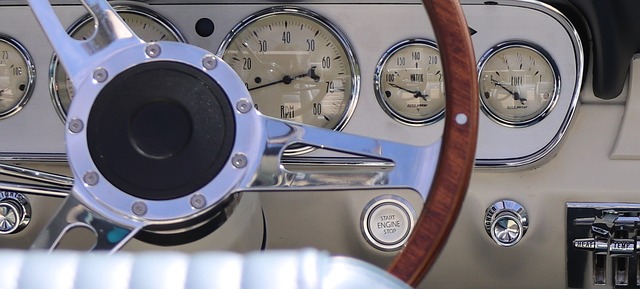“Overpaying for your car finance can be a tricky situation, especially with complex contracts like Personal Contract Plans (PCP) in the UK. This guide aims to demystify PCP claims and overpayment scenarios. First, we’ll break down what PCP claims are and how they operate within the UK’s automotive financing landscape. Then, we’ll equip readers with knowledge to identify potential overpayments and outline actionable steps if they believe they’ve been affected. By understanding these aspects, you can navigate your car finance with greater confidence.”
- Understanding PCP Claims: What They Are and How They Work (UK Focus)
- Recognizing Signs of Potential Overpayment in Car Finance Agreements
- Steps to Take if You Believe You've Made an Overpayment on Your PCP Contract
Understanding PCP Claims: What They Are and How They Work (UK Focus)

In the UK, Personal Contract Plans (PCP) are a popular way to finance a car purchase. A PCP claim refers to a mechanism that allows individuals to offset the cost of their vehicle against tax when the agreement ends. Here’s how it works: when you opt for a PCP deal, you agree to make regular payments over a set period, typically 2-3 years. At the end of this term, you have several options, including returning the car, paying off the remaining balance, or trading it in. If you choose to dispose of the vehicle, any profit or loss is calculated based on the original purchase price and the current value, and this difference can be claimed as a tax deduction through PCP claims.
PCP claims offer significant financial benefits by reducing your taxable income. They are particularly advantageous for those who have taken advantage of initial low-interest payments but wish to avoid high residual values when replacing their cars. Understanding PCP claims is crucial in navigating the UK car finance landscape, ensuring you make informed decisions that could save you money on your taxes.
Recognizing Signs of Potential Overpayment in Car Finance Agreements

If you’re considering a Personal Contract Purchase (PCP) agreement for your next car, it’s crucial to be vigilant and recognize any signs of potential overpayment. Often, PCP claims can seem appealing due to low initial monthly payments and the option to change or return the vehicle at the end of the term. However, close inspection is required to avoid being trapped in a deal that could cost you more than expected.
Keep an eye out for hidden fees and charges that might inflate the overall price. These can include high administration costs, excessive mileage charges, or unexpected end-of-term fees. In the UK, PCP claims have been known to vary significantly between dealerships, so comparing offers from multiple sources is essential. Additionally, ensure you understand the terms and conditions thoroughly before signing any agreements, especially regarding excess wear and tear charges and potential hidden costs associated with early termination.
Steps to Take if You Believe You've Made an Overpayment on Your PCP Contract

If you suspect an overpayment on your Personal Contract Purchase (PCP) agreement in the UK, there are specific steps to take. The first course of action is to review your contract documents thoroughly, focusing on the payment schedule and terms outlined within. Compare these with your bank statements and any records of payments made to ensure accuracy. If you identify a discrepancy, initiate a PCP claim by contacting your finance provider or dealer directly.
Documenting evidence of overpayment, such as receipts, is crucial for supporting your PCP claims. Explain the situation clearly, providing details of the incorrect payment and the expected amount. They may request additional information to verify your claim. Once validated, the next step involves negotiating a refund or adjusting future payments accordingly.
When it comes to car finance, overpaying on a PCP (Personal Contract Purchase) contract is a common concern for UK drivers. By understanding PCP claims and being vigilant about potential overpayments, you can protect yourself from financial surprises. If you believe an overpayment has occurred, promptly take action by reviewing your agreement, seeking clarification from the lender, and considering a PCP claim if necessary. Staying informed and proactive ensures you get the most out of your car finance deal.
